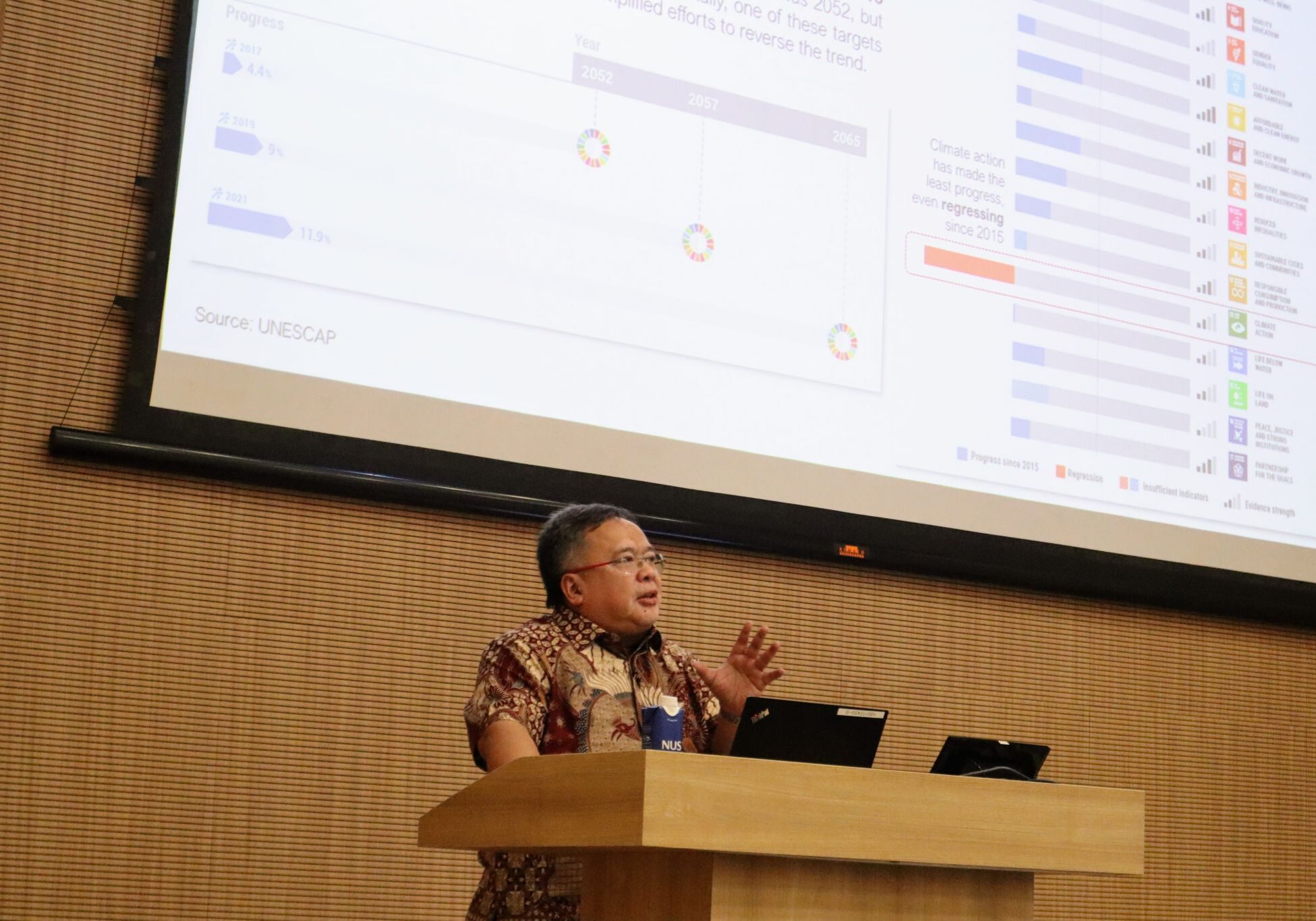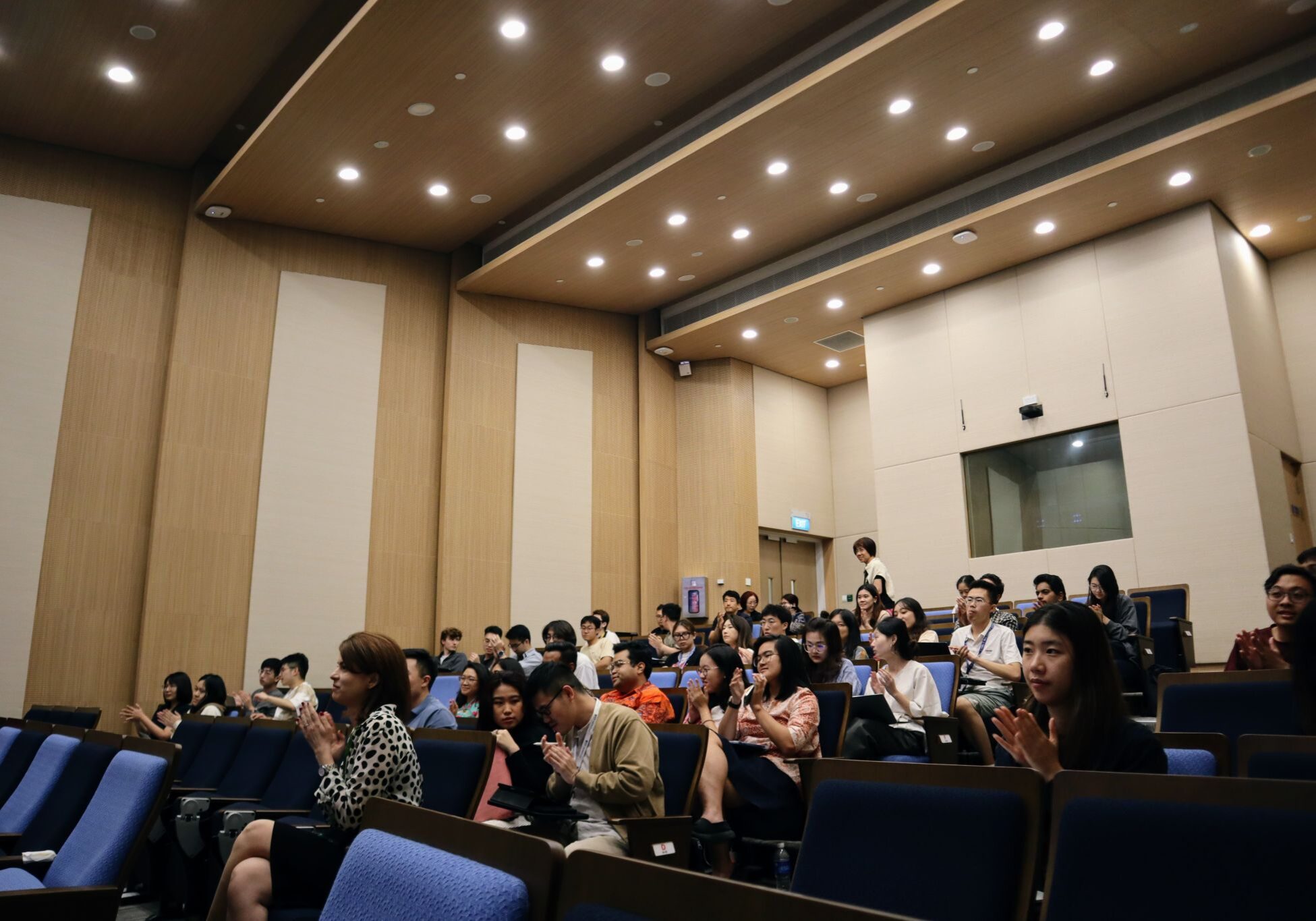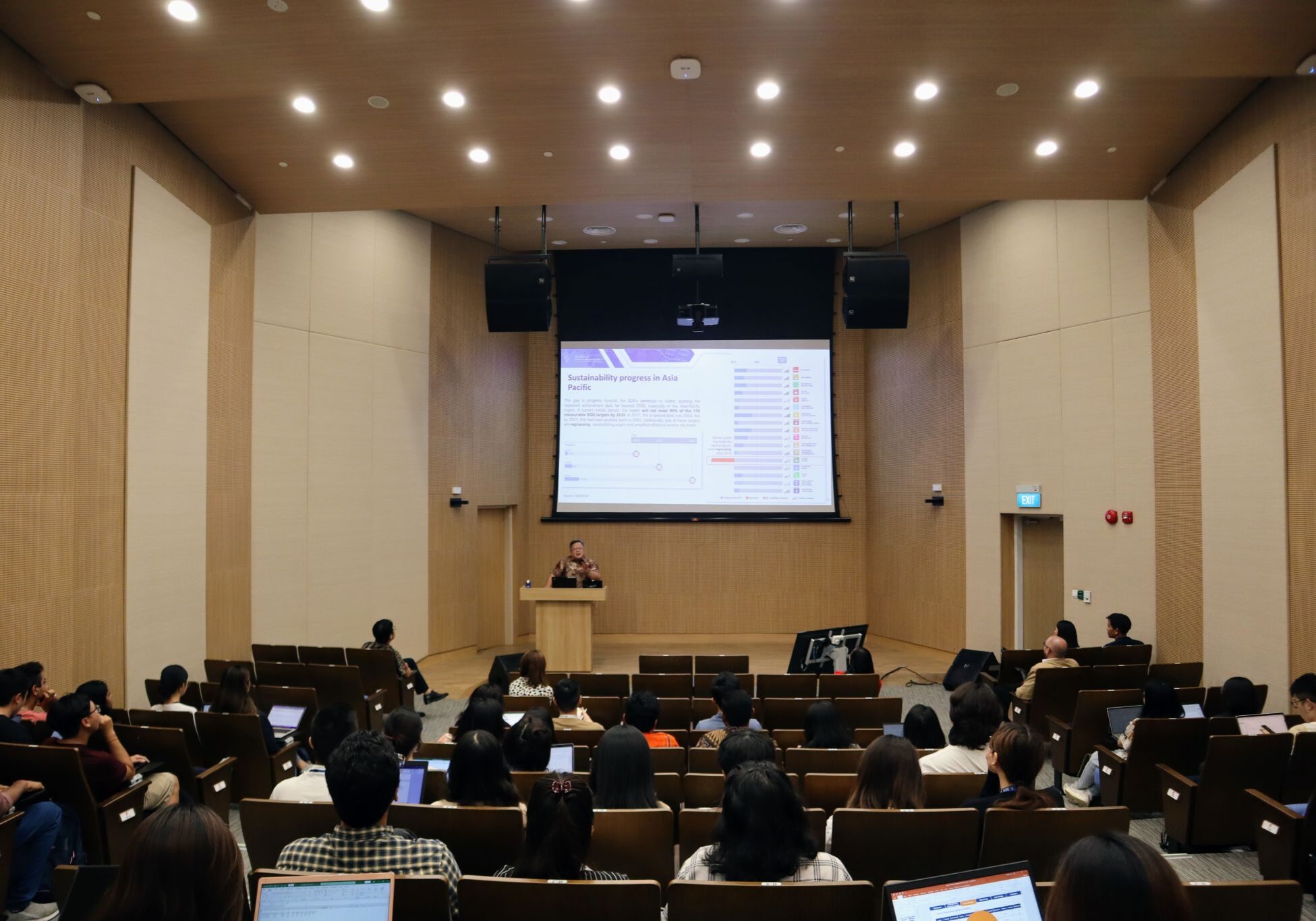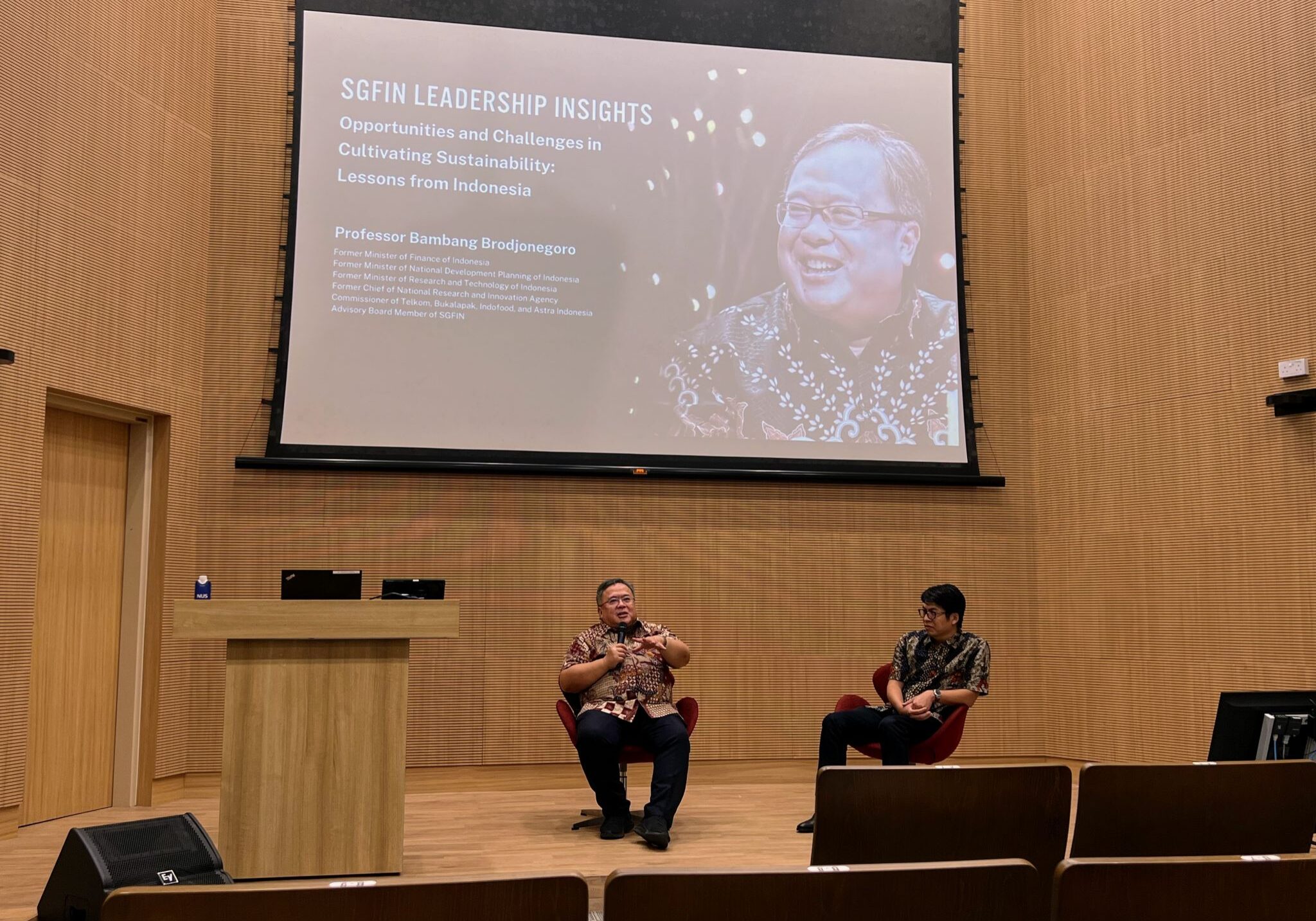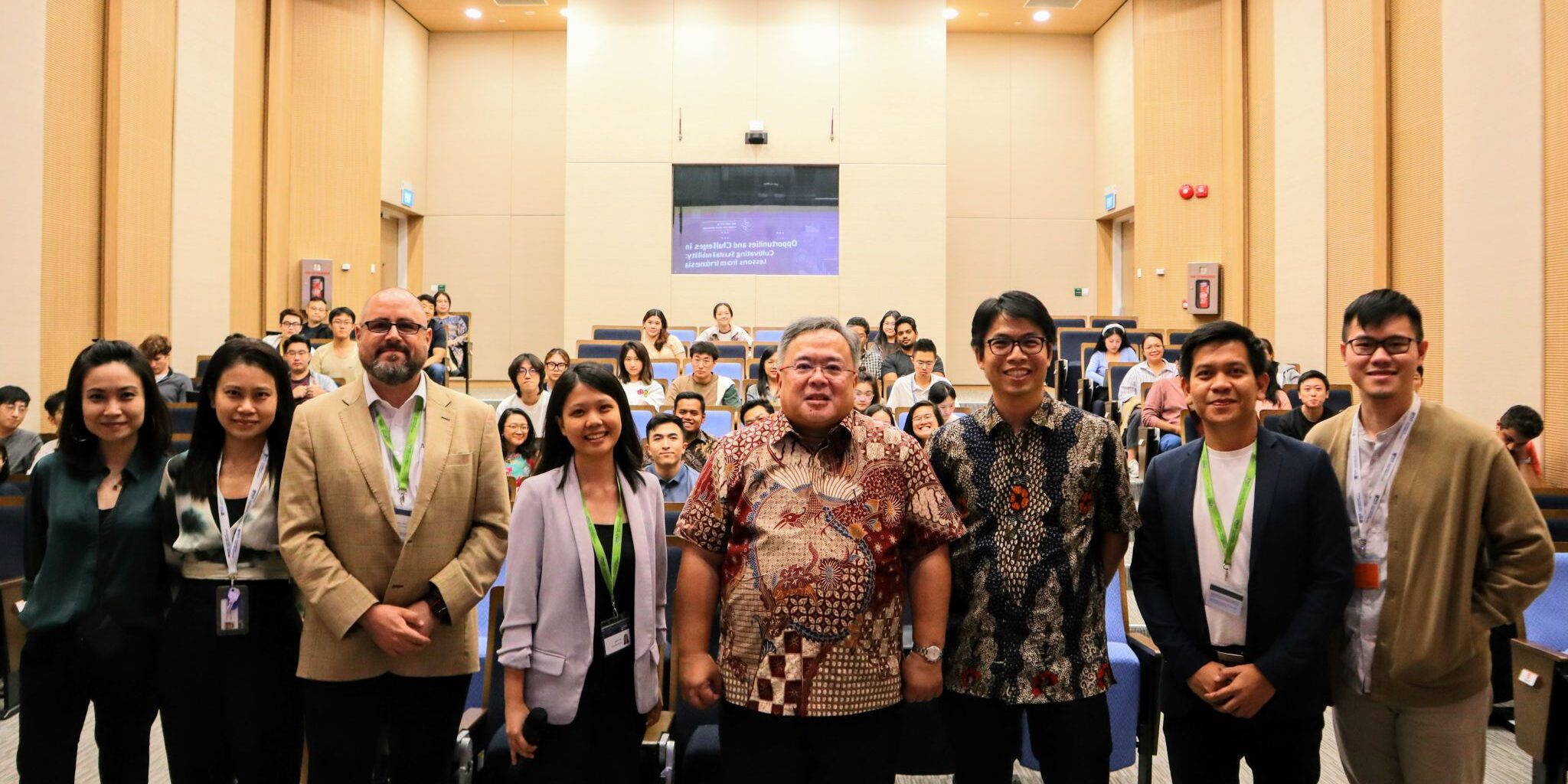
SGFIN Leadership Insights with Prof Bambang Brodjonegoro
1 Nov 2023
SGFIN has officially kicked off the SGFIN Leadership Insights series, and we are honoured to warmly welcome Professor Bambang Brodjonegoro to share his thoughts on opportunities and challenges in cultivating sustainability, with Indonesia as the case study. Drawing from his vast experience, including as Minister of Finance, Minister of Research and Technology, and Commissioner of several publicly listed firms, Prof Bambang packed his presentation with insights only he could provide. He also masterfully addressed the questions underlying audience’s queries during Q&A session.
Here are the highlights from Prof Bambang's talk:
- Generating renewable energy in Indonesia is complex due to its archipelagic nature: Indonesia is the biggest archipelago country in the world, with more than 17,000 islands in its territory. While these islands have potential to generate renewables, many are hard to access, necessitating conversion into electricity before they can be transported to power other islands. Moreover, sources of renewables may be located in areas of high conservation value, creating another dilemma of whether or not to cut the forests to tap into the renewables there.
- The hurdle to overcome - balancing the energy trilemma in local context: With this complexity in mind, Prof Bambang argued that energy transition has no one-size-fits-all solution; aspects of energy trilemma (availability and reliability, affordability, and sustainability) must be contextualised to ensure an effective and equitable energy transition. The good news is that more investors are approaching this issue more strategically. Prof Bambang further emphasised the need for downstreaming and human capital development to manage such investments if Indonesia is to fulfil its net-zero target by 2060.
- "How can we reduce emissions from the transportation sector in Indonesia?" Prof Bambang proposed three ways to address this issue. First, Indonesia can enhance its public transportation and ensure that people use it, especially in cities. Second, government may introduce biofuel as a fuel substitute, thus reducing emissions from vehicle use. Third, the nation may encourage more adoption of electric vehicles (EVs). However, producing biofuel and EVs is carbon-intensive, with palm oil as the primary biofuel source in Indonesia being infamous for its disruptive farming practices and EVs requiring a lot of metals that may not be sourced responsibly. As such, the government must work with relevant stakeholders to find the most optimal solution.
